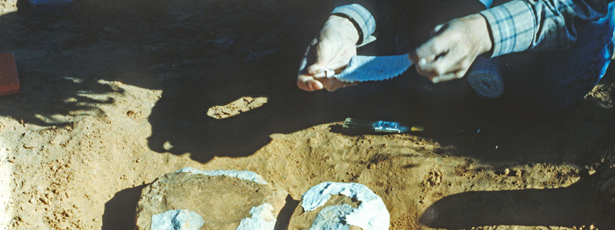General Issues
Allergies
Preparators should be cautious when working with molding and casting compounds. It is possible to develop sensitivities to polyester and epoxy resins that can, in the most serious cases, lead to an inability to handle these materials. Two-part epoxy resin systems contain epoxy resin, catalysts/curing agents, diluents and other additives any of which may cause irritant and/or allergic contact reactions. Cured epoxy resin (the fully hardened combination of the epoxy resin system chemicals) should be non-irritating and non-sensitizing.
For more information visit the Allergy to Epoxy Resin DermNet NZ webpage.
Ironically, the increased use of latex rubbers in personal protective equipment gloves is also a cause of allergies for some individuals. Allergies to latex can cause welts, swelling, rashes and asthma. Other materials such as nitrile gloves can be used to replace latex products in the lab. Resources are available online for dealing with this challenge.
Repetitive Stress
An informal survey of fossil preparators by Scott Madsen indicated that the most common injuries are: repetitive stress from lab work with hand tools, or other strain injuries in the field and lab (backs, shoulders, etc). Prevention requires varied routines and frequent breaks from work.
For exercises to combat repetitive stress injuries (e.g. wrist tendonitis, carpal tunnel syndrome, etc.) consult the University of Michigan Health System Sports Medicine Advisor Index. Information on diagnosis, treatment and exercises to prevent or rehabilitate are available online.
Download the Burke Museum Lab Manual for other practical information and tips on health and safety.


